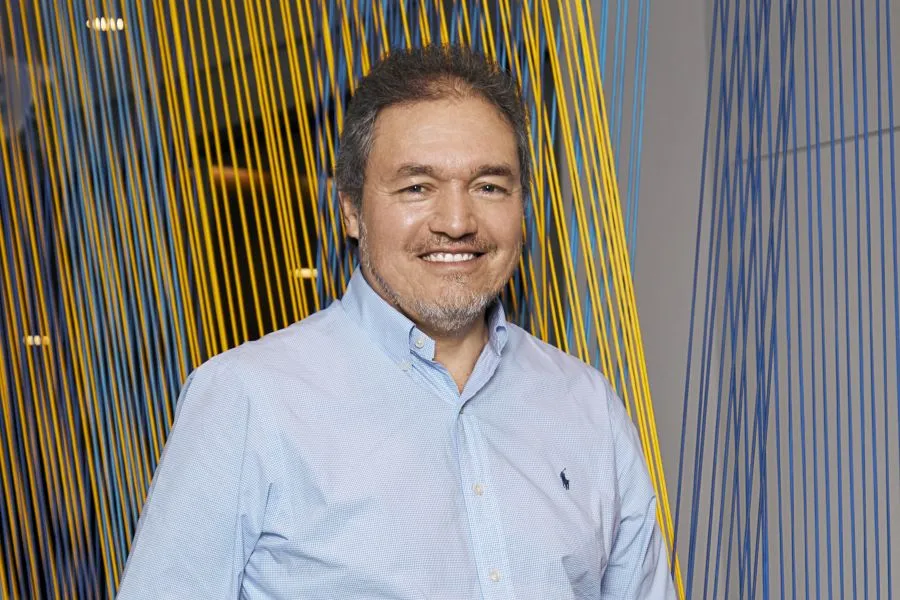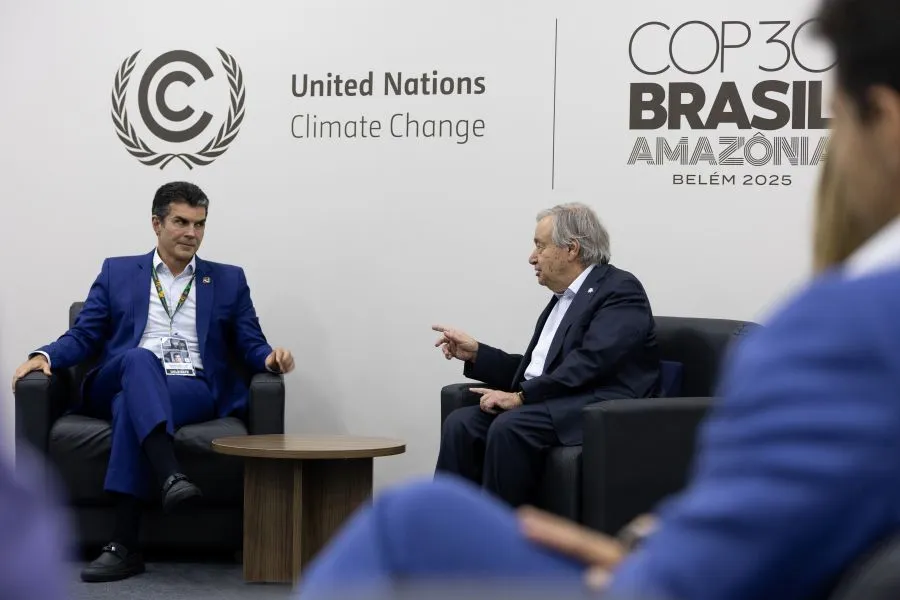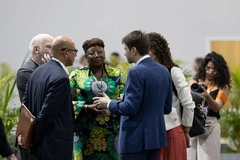COP30: Braskem pushes for bioplastics integration and strong public policy
Key takeaways
- Braskem’s Jorge Soto advocates for industry collaboration to scale biopolymer demand at COP30.
- Braskem leads the biopolymer market with its renewable I’m Green polyethylene, produced from sugarcane ethanol.
- The company calls for integrated policies in Brazil to incentivize renewable materials and boost R&D investment.
At this year's UN Climate Change Conference of the Parties (COP30), Braskem is highlighting the role of biopolymers in sustainable packaging, envisioning a chemical industry fully integrated into the bioeconomy. Jorge Soto, director of Sustainable Development at Braskem, emphasizes the importance of bio-based solutions in reducing carbon footprints while advocating for stronger public policies that foster industry collaboration.
At the conference, Braskem is addressing Brazil’s bioeconomy, sustainable carbon, bioplastics, and pathways to decarbonization in various panel discussions.
“COP30 will be an opportunity to formalize the pathways toward sustainable development. Expanding the supply of bioproducts that help tackle climate change and establishing a favorable regulatory environment are key points to be discussed at this time,” Soto tells Packaging Insights.

“Industry plays a central role in the transition to a low-carbon economy by developing technological solutions and adopting more efficient production models.”
Braskem produces biopolymers such as the I’m green bio-based polyethylene, which has applications in various packaging solutions.
“Braskem is the world’s largest producer of biopolymers and exports its renewable polyethylene to more than 40 countries. The I’m green bio-based biopolymers are produced from ethanol derived from sugarcane, which is transformed into renewable ethylene as a raw material.”
Strengthening public policy
At COP30, Soto sees opportunities to discuss the role of public policy in boosting demand for bio-based products and strengthening market supply.
He notes that Brazil lacks an integrated public policy and clear incentives that encourage the expansion of renewable raw materials.
 Jorge Soto, director of Sustainable Development at Braskem (Image credit: Braskem)."Without these instruments, Brazil risks missing the opportunity to fully capture its potential to lead the renewable solutions market — especially in strategic sectors that require proof of environmental attributes,” he adds.
Jorge Soto, director of Sustainable Development at Braskem (Image credit: Braskem)."Without these instruments, Brazil risks missing the opportunity to fully capture its potential to lead the renewable solutions market — especially in strategic sectors that require proof of environmental attributes,” he adds.
He advocates stronger public policies in the country that drive demand by setting requirements for renewable or recycled content. Moreover, Soto attests that there needs to be more incentives for R&D investments and reducing capital costs.
Renewable biopolymers
Braskem’s biopolymer matches the technical properties of conventional polymers, eliminating the need for additional processing or recycling equipment, explains Soto.
Solutions developed with I’m green bio-based polymer do not require any new investment in processing or recycling equipment.
“Another distinctive feature is that the conversion process from ethylene to polyethylene is fully segregated, allowing for verification of renewable content through Carbon-14 analysis. This makes the value proposition more transparent and robust when compared to other solutions that dilute sustainable feedstock into the existing petrochemical process,” he says.
Soto argues that Braskem’s solutions can help brands communicate the benefits of using renewable polymers in packaging products.
The bio-based market in Brazil
The biopolymer market in Brazil is ripe for expansion, according to Soto. “There are already solutions that highlight the strength of the Brazilian biopolymer market.”
“In 2010, Braskem began producing polyethylene from sugarcane ethanol. Years later, the product portfolio expanded with the launch of I’m green bio-based ethylene-vinyl acetate (EVA) copolymer and polyethylene wax, making it even more complete and ideal for companies seeking to reduce GHG emissions through their raw materials.”
 Braskem says industry plays a central role in the transition to a low-carbon economy (Image credit: UN Climate Change - Kiara Worth).Braskem says that, given the success of its I’m green biopolymer, production in Brazil can be the “most competitive.” However, he cautions that one challenge is increasing demand for more sustainable products.
Braskem says industry plays a central role in the transition to a low-carbon economy (Image credit: UN Climate Change - Kiara Worth).Braskem says that, given the success of its I’m green biopolymer, production in Brazil can be the “most competitive.” However, he cautions that one challenge is increasing demand for more sustainable products.
Dialogue with the public sector
Braskem collaborates with associations in Brazil, such as Abiquim, ABBI, CNI, and the Brazilian Business Council for Sustainable Development, as well as international entities like the International Council of Chemical Associations. It aims to foster open dialogue that fosters stronger partnerships and collaborations.
Soto adds: “At Braskem, we have been actively participating in public consultations and technical forums, contributing with data and practical experience on bioinnovation and climate change mitigation.”
“From our experience, markets tend to grow faster in regions where public policies encourage demand for more sustainable products, such as our renewable solutions. Japan and several European countries are good examples of this dynamic.”
As COP30 progresses in the coming days, Braskem will feature in multiple panels to discuss the role of its biopolymers and opportunities for industry collaboration.
Soto points to Brazil’s recent National Bioeconomy Strategy, which encourages decarbonizing production processes, while promoting biomass production and advances in bioindustrialization, suggesting that industry “seems to be moving in the right direction.”













